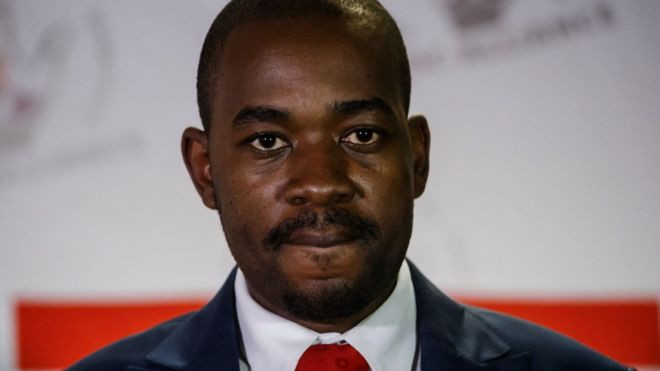By Christopher Makaza
The opposition leader Nelson Chamisa seems to be ignoring calls from within his party and the general populace for him to swallow his pride and join the dialogue route and not the violent demonstrations he is proposing in a bid to address the current economic crisis bedevilling the nation.
The sin of pride which is the foundational sin of all other sins seems to be haunting the opposition leader.
According to scholars, Pride puffs up the ego, which tempts each one of us to selfishly concentrate on what we want, often with no thought of the God-given rights of others.
Instead of taming the pride-filled ego with humility, Chamisa often allows it to dominate his thoughts, words and actions, which make respectful dialogue nearly impossible. Chamisa is instead inciting violence and calling for more destructive demonstrations in an effort to unconstitutionally remove President Emmerson Mnangagwa from power.
During this years` Workers Day commemorations held in Dzivarasekwa, Chamisa openly threatened that the MDC will organise a massive mother of all demonstrations, whose magnitude will surpass the previous demonstrations where lives of innocent people were lost and hundreds of thousand dollars’ worth of property destroyed.
Chamisa refused to join other political parties in the National Dialogue questioning the legitimacy of President Emmerson Mnangagwa and bringing forward unrealistic and unnecessary demands ignoring his own legitimacy crisis as the MDC leader.
I wonder what his reaction is following the High Court ruling that his appointment as Acting President and President of the opposition party were unconstitutional and void.
It should be known to Chamisa that unconditional and respectful dialogue is absolutely necessary to root out the weeds of violence. Respectful dialogue communicates first and foremost from the heart. It speaks from the heart and listens from the heart. It is heart-to-heart communication. It tries to genuinely understand the other person's legitimate needs and the pain of not having those needs met. Respectful dialogue walks in the other person's shoes.
Unfortunately, some peace loving Zimbabweans are made to believe by the MDC that only violence will solve the current crisis. They have not learned the tragic lessons of history. Violence never leads to genuine, lasting peace. Instead, it plants the seeds for future violence, which grows like weeds.
Violence is not limited to physical attack and battery. The power of words is so strong that its effect is limitless as it can penetrate both the physical and spiritual objects and spheres. Party slogans and songs are used to show emotions or feelings about something, somebody or group of people. Majority of MDC slogans and songs are meant to incite people to engage in violent activities and revolt against the Government. During the workers` Day celebrations such MDC slogans like “Kana tati ngachitsve, ngachitsve” Mnangagwa mudenga, Mangudya mudenga, Ncube mudenga, kandai pasi, pwanyai musoro, hezvoko Bwaa” were in fashion. These slogans are obviously unkind and undoubtedly meant to incite people to violence.
The late Marshall Rosenberg, teacher of peace and founder of “The Center for Nonviolent Communication” insightfully said: "When our communication supports compassionate giving and receiving, happiness replaces violence and grieving!"
Chamisa should know that true dialogue brings together a diverse set of voices to create a microcosm of the larger society. To bring about sustainable change, people have to develop a sense of joint ownership of the process and become stakeholders in identifying new approaches to address common challenges.
Dialogue entails learning, not just talking. Participants must be willing to address the root causes of a crisis, not just the symptoms on the surface. Violence is the last refuge of the incompetent.
Despite the absence of MDC in the national dialogue, other leaders of different political parties continue to meet. Yesterday, they met at State House in Harare to deliberate on the basic conceptual structure for the national dialogue coined “Political Actors Dialogue (POLAD).
The parties have since agreed that there should be no pre-conditions for dialogue and that there should be no sacred issues during the discussions. Previous meetings have also agreed that both political and economic reforms should be implemented while politically motivated violence should not be tolerated.




